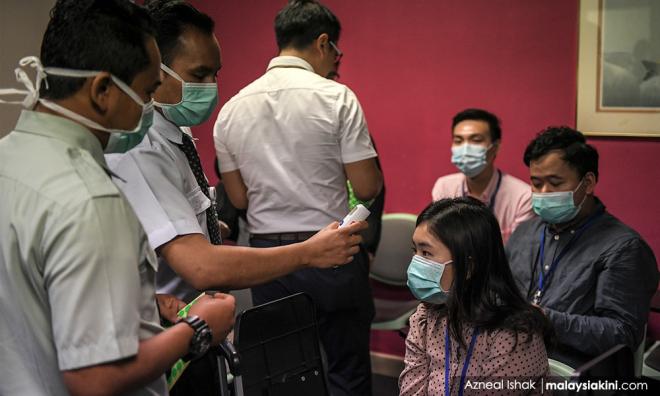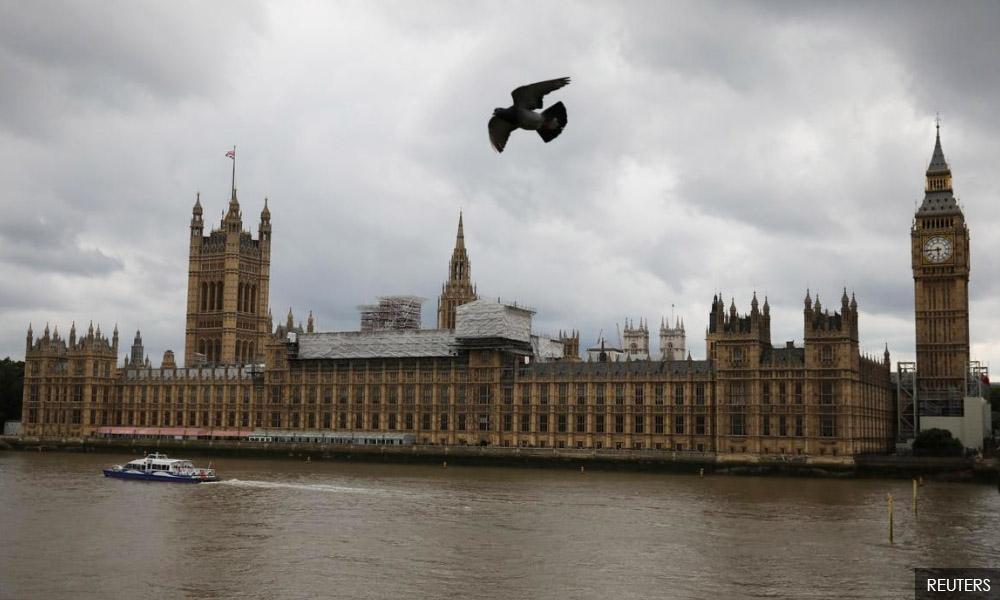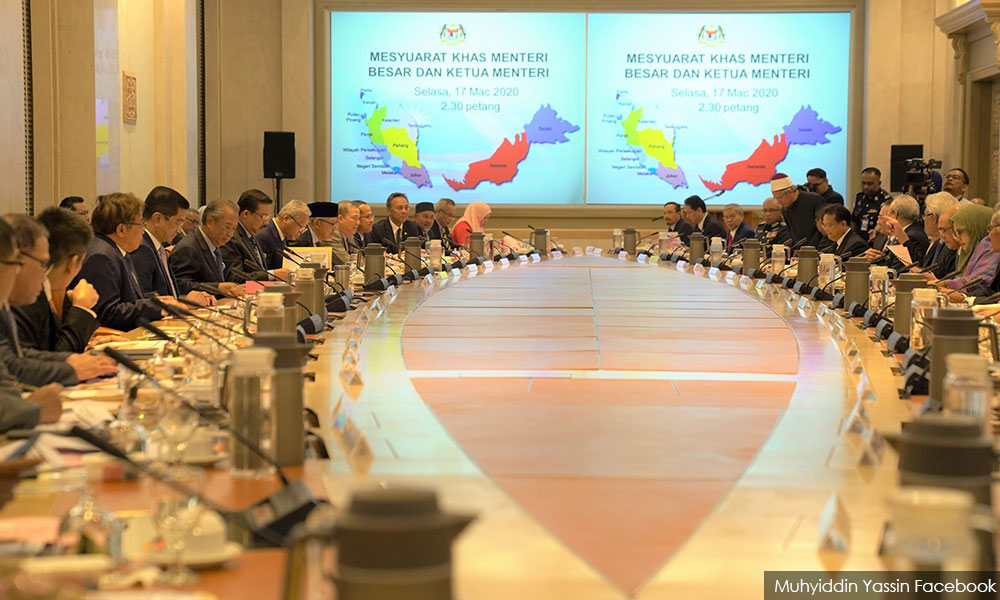
We watched intently as governments all over the world cope with this crisis.
At first, it was China. We watched as China built hospitals virtually overnight to cope with the large number of patients requiring hospital care. We were astonished and impressed with China's capacity to do so. We watched with astonishment the draconian lock-down China imposed.
We watched Hong Kong struggle to keep the city free from the virus spreading from China.
And then we saw the spread of the Covid-19 to South Korea, with the epicentre moving from Wuhan to Korea.
Then it moved to Italy. And we were also surprised when Italy imposed a lock-down as well. Then it was Spain and France and Germany.
Now, it is everywhere.
What astonished us was to see the inadequacy of the American response and how unprepared the Americans appeared to be. We watch how the Americans alter their action plans daily. Now, they seem to be taking the problem quite seriously. Trump was, of course, more concerned about the problem impacting his re-election prospects.

The UK also was slow off the mark, until the publication of a study by the Imperial College in London. That study projected a far higher incidence of contagion previously thought possible.
Now Britain contemplates far more sweeping measures.
The kind of money being put out to deal with the health and financial implications of this crisis is mind-boggling.
The US projects a need for US$1 trillion.
The UK Government projects the need for £300 billion.
Most countries are adopting varying degrees of lock-down.
Malaysia has in the last two days imposed a lock-down until the end of the month.
The implications for businesses are severe. Many will close down and thousands of jobs will be lost.
Without financial assistance, many businesses will not survive, and many people will not have money to buy food, medication and basic necessities.
This is the worst crisis this country has faced.
The initial government response, while necessary, was late in the coming and lacked the details needed for people to know exactly what it was, as well as what they could do or not do. Even enforcement agencies like the police struggled to cope. Interstate travel was allowed only with a police permit. The police were then inundated with requests for permits. In the end the restriction was lifted.
Was Singapore consulted? With 300 thousand Malaysians travelling to and from Singapore every day for work, the decision has serious consequences to Singaporean businesses and our people.

A meeting called by the federal government to coordinate action by all states excluded the Pakatan Harapan-held states. That was astonishing. An apology was given and hopefully, politics will not impede the efforts made to contain the problem.
From what I have read and seen of the action required to battle the crisis, the first is containment of the virus. The second is the development of our hospital's capacity to cope with the expected upsurge of cases. Finally, the financial assistance to keep businesses afloat and those who lose their jobs to enable them to survive. Banks and other lending institutions should give all borrowers a moratorium. The inland revenue board will have to wait.
Financial wizards will have to work out how much money is required and more importantly, decide where that money will come from. Can we simply print money as the US does? Or do we have to borrow? I suppose in this kind of crisis, we must forget previously held limits and ratios on what is prudent for us. We must weigh and balance the health and safety of our people, and the financial implications of a deep recession, if nothing is done against the debt burden we will create for ourselves.
The real problem is that we do not know what the scale of the problem is going to be and how long will it last. Modelling done by the Imperial College projects a much bigger problem than previously anticipated by the British government.
There will also be the need to look at the mega projects we have embarked on, including the East Coast Rail Link, Tun Razak Exchange and some of our port projects. Do we go on with the Kuala Lumpur-Singapore High Speed Rail project?
This is a difficult time for us. There is little room for our politics of hate and division.
It must be all hands on deck, whatever our race, religion or politics. We are all in the same boat.
If there was a need for a unity government, it is now. All political parties should speak with one voice. There could be different views as to what should be done. We should defer to the experts. We should see what is happening elsewhere in the world and learn from the experience of other nations on what works and what does not work.
For the time being there should be a suspension of hostilities. Let us all harness our energies to combat a common foe.
DAVID DASS is a lawyer, Malaysiakini subscriber and commentator.



No comments:
Post a Comment
Note: Only a member of this blog may post a comment.